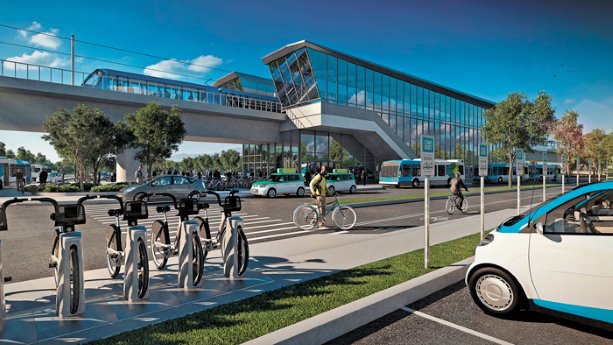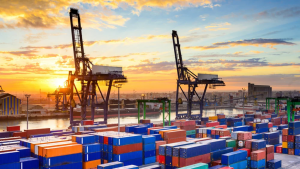MONTREAL — The federal government has announced spending of $1.283 billion from the long-term Investing in Canada infrastructure plan to support the Reseau electrique metropolitain (REM) light rail network in Montreal.
The announcement issued June 15 will make it possible to finalize the financing of the project and meet the construction schedule of the Caisse de depot et placement du Quebec, a media statement indicated.
The REM will link downtown Montreal, the South Shore, the West Island, the North Shore and the airport via a dual-track automated electric LRT system.
CDPQ Infra, the infrastructure subsidiary of Quebec’s Caisse de depot pension fund, is the project owner and has confirmed a commitment to spend $3.1 billion. The province is contributing nearly $1.3 billion.
Work is projected to begin in the fall and the first automated trains are expected to be in operation by the end of 2020.
The federal government also announced that, once the Canada Infrastructure Bank is established, it will be possible for the Province of Quebec and the Caisse to identify the project as an opportunity for independent analysis and consideration by the bank. If the bank decides to move forward with an investment in the REM project, it will be possible for an investment to come from the bank rather than Quebec’s transit allocation, the statement said.
Once completed, this new, automated light rail network will include 27 stations, span 67 kilometres and operate 20 hours a day. The REM will be the fourth largest automated transportation system in the world after Singapore (82 kilometres), Dubai (80 kilometres) and Vancouver (68 kilometres).
More than 34,000 direct and indirect jobs are expected to be created during the project’s construction, and more than 1,000 permanent jobs would be created upon completion.











Recent Comments
comments for this post are closed